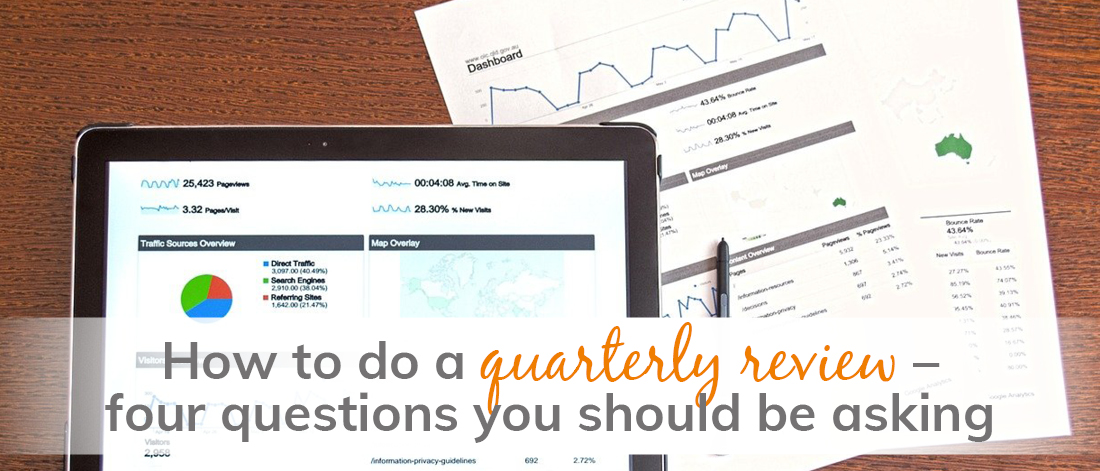How to do a quarterly review – four questions you should be asking

One quarter of the year is a long enough period time for you to notice trends, but not so long that patterns become irrelevant. As we change from Q3 to Q4, it’s a good time to review the last quarter, measure the success and take on learning points for the coming quarter.
In this blog, we look at the four questions business owners should be asking during a quarterly review.
- What is your financial position?
Your financial position – how much money is in the business – is your most important consideration. This is because you need to meet your overheads, perhaps paying staff or rent on a business premises. You also need to deliver your core business, which is only possible if you can pay your suppliers. Even if you don’t run a retail business, you will still have outgoings like webs hosting and software licenses.
Understanding your financial position will inform whether you should be tightening your belt or planning for growth. Planning for the next quarter will be the next step after your review, so it helps to have all the information at your fingertips.
- Did you achieve your quarterly goals?
Perhaps you wanted to attract a certain number of new clients – did you? Perhaps you wanted to develop a specific service – have you put the right foundations in place?
If you did achieve your goals, remember to celebrate and share the results with your team. This positivity will radiate out and motivate you and your colleagues to aim high as you go into the next quarter.
But if you didn’t achieve your goals, it’s important to find out what went wrong.
- Why didn’t you achieve your quarterly goals?
The first reason is that you might not have set a realistic goal. If you’re a startup, hoping to become market leader in one quarter was probably never going to happen (sorry!).
But if you set a SMART goal and didn’t meet it, you need to know why as this will help you deepen your business knowledge.
For example, you goal might have been to increase your social media engagement by a certain percentage. If you didn’t make that figure, it might be because you don’t have the right expertise within your business. Just rolling over the goal into the next quarter isn’t going to work – instead, address the skills gap and consider training or outsourcing.
On the other hand, you might have missed your goal because of another problem. Perhaps staff sickness impacted the business, or there was a break in your supply chain. If that’s the case, looking at your contingency planning is vital. Build up a network of additional suppliers and tighten up your plans for staff cover.
- What else happened that helped the business?
No experience is ever wasted. As you look back on the last quarter, review any unexpected events that helped the business. Perhaps a new contact recommended you and brought you more business. If this happened, ask yourself how. Where did you meet them? What service did you provide that prompted them to refer you? This is a process it would be valuable to repeat, so learn from the previous one and factor it into your future planning.
Likewise, were you an unfortunate victim of circumstance? Perhaps you’ve fallen foul of the fuel crisis and been unable to make deliveries. However, you could turn that into a positive and increase the efficiency of your route planning and logistics. This will improve your business resilience for the future.
Build business resilience through outsourcing
A solid quarterly review will deepen your knowledge of your business, inform business continuity and help you plan for the future.
Outsourcing is a great solution that can really help with your business resilience. Find out more about business continuity planning here, or give us a call on 01483 332 220 – we’d love to hear from you.








